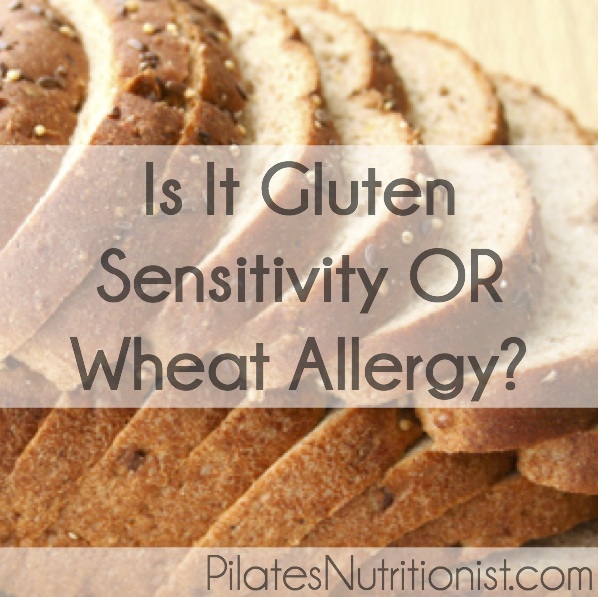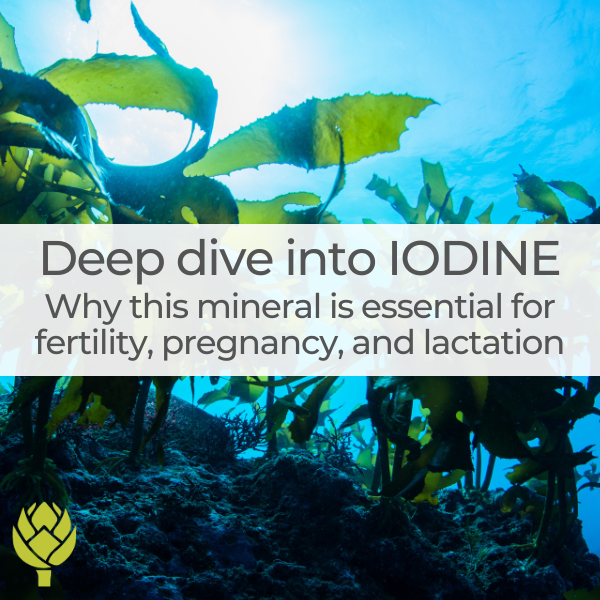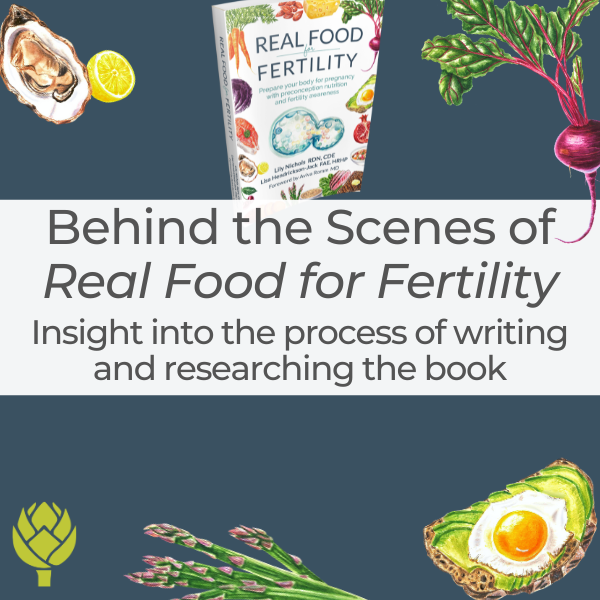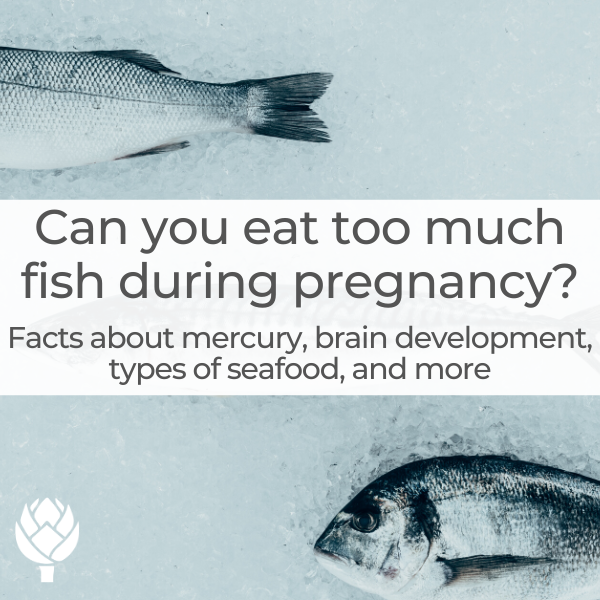Did that slice of pizza last night tear up your stomach? Are you often bloated and gassy after eating bread? Maybe you’re thinking about going gluten-free, but you’re not sure.
As a specialist in food sensitivities, I get a lot of questions about gluten sensitivity and wheat allergy. To help you sort through the confusion, I’ll go through some of the common gluten sensitivity symptoms and wheat allergy symptoms so you can decide what to do about it.
First off, gluten sensitivity and wheat allergy are related, but distinctly different.
Gluten Sensitivity and Celiac Disease
Gluten sensitivity is a broad term that includes a variety of diagnoses. Simply put, gluten sensitivity means that eating gluten, a protein found in wheat and certain other grains (rye, barley, and all varieties of wheat), has a negative effect on the body.
In its most serious form, celiac disease, eating gluten causes a damaging autoimmune response in the body and must be completely excluded from the diet. Symptoms can include bloating, gas, diarrhea, joint pain, skin rashes (similar to eczema), foggy thinking, headaches and long-term nutrient deficiencies (like iron, vitamin D, calcium, and others).
Getting tested for celiac disease is a good idea if you suffer from any of the above, though at least 50% with the disease don’t have symptoms. Scary, I know. Plus, it takes an average of 11 years for those with celiac disease to get diagnosed properly, since the symptoms are shared with a number of other conditions.
If the celiac testing comes back negative and you’re still having symptoms, it could be non-celiac gluten sensitivity (NCGS), now becoming a more widely recognized problem worldwide. People with NCGS don’t have the classic autoimmune intestinal damage seen in celiac disease, but they suffer other inflammatory damage from gluten. A study from the Maryland University showed 28-30% of people with irritable bowel syndrome (IBS) had non-celiac gluten sensitivity.
There are controversies on the best testing for gluten sensitivity and no blood test is perfect. However, once you’ve ruled out celiac disease, it’s fair game to trial a gluten-free diet for a few weeks (some docs suggest a minimum of 3 months) and monitor your symptoms. If you feel much better eating gluten-free, you might have gluten sensitivity and it’s worth it to avoid gluten-containing foods.
One extra note on symptoms – If you’re experiencing brain fog after eating wheat or gluten-containing products, it’s more likely that you have non-celiac gluten sensitivity than celiac disease. Studies show 35% of people with NCGS have brain fog, while only 5-10% of those with celiac disease report this symptom.
Keep in mind that symptoms of food sensitivities can be delayed, meaning than unlike an allergy, you might not feel sick immediately after eating. In some people, symptoms are delayed up to 4 days after ingestion. For others, delayed food sensitivities can provoke symptoms for 2 weeks after eating. That also means, if you go on an elimination diet, you need at least 2 weeks to be sure the food is completely out of your system.
That makes it very tricky to keep track of what’s behind your symptoms without some lab testing to confirm. In other words, “test, don’t guess”. Maybe you’ve cut out gluten, but you’re eating other reactive foods. In that case, you could remain on a limited diet for a long time and not get any better while also risking nutrient deficiencies.
If you’re interested in getting tested for food sensitivities, head over here to learn more about it. I’ve had clients who heal from their symptoms in as little as 3 days on their customized elimination diet, based on the results of MRT food sensitivity testing with most clients experiencing a 60-70% drop in symptoms in the first month.
Food can be medicine or poison and what works for one person doesn’t work for another. The only way to know for sure is to test.
Wheat Allergy
If you have wheat allergy (as opposed to a gluten sensitivity), you will likely experience symptoms sooner, usually within a few hours after eating wheat. Wheat allergy symptoms include swelling/irritation of the mouth or throat, hives, itchy rashes, sinus congestion, watery eyes, nausea, and diarrhea. In severe cases, wheat allergy symptoms can lead to anaphylaxis, a life threatening reaction that requires immediate medical attention.
A true wheat allergy is more akin to the classic peanut allergy and typically diagnosed in early childhood. Wheat allergy isn’t common in adults. Even traces of wheat from cross-contamination, such as bread crumbs left on a knife, can provoke an allergic reaction.
Wheat allergy is classified differently from gluten sensitivity due to the immune cells and antibodies that are involved. Essentially it’s a different problem with the same culprit. People with wheat allergy need to avoid wheat entirely, but unlike celiac disease, some may be able to eat other gluten-containing grains, like rye and barley. I suggest seeking an experienced allergist to test for wheat allergy.
Now, I’d like to hear from you. Do you get symptoms from eating wheat or gluten? What are your symptoms? Have you been tested for celiac disease, gluten sensitivity, or wheat allergy? Tell me about it in the comments below.
Remember, if you’re struggling with any of the symptoms discussed in this article, your doctor should rule out celiac disease and wheat allergy before you go gluten-free. If those two conditions have been ruled out, but you’re still experiencing digestive troubles and suspect food is a culprit, you might consider getting tested for food sensitivities to uncover the hidden cause of your symptoms.
Until next week,












I have had bloating, belly pain, head aches, joint pains and depression for years. When my son started having excema related to wheat intake, we began a gluten-free diet at home (easier since there are gluten-free sections everywhere now). I kept the diet, too, and for months felt really great! No headaches, body aches, crippling belly aches. I broke my diet 2 days ago for the crust on a piece of spinach pie. Today, the pain in my stomach is do bad I cannot stand up, just like the old days. I guess I’ll be going back on the diet!
hello lily
thank you for your information. i am 50yrs old, and suffered from migraine headaches for 36yrs. over the past 3 years, after the birth of my last child at 47, i began getting heartburn from everything i was eating. over the past 18mnths, our family has gone organic and low gluten, minimal goat dairy, and we have all improved in digestive health. however, i am now suffering from chronic daily migraines, an arm rash (for past 3 years), and crashing after sugar and wheat in the morning. my current symptoms are crusty, scabby sores on forearms which become severely itchy in the sun. daily migraines which are unrelieved by supplements, low energy, inability to lose weight and i am eating mainly vegetable, and protein. i am eating 1 bread with cheese and avacodo and coffee with cream and sugar in the mornings. i have stomach bloating, low muscle tone despite yoga and walking daily, and red, itchy eyes, and stuffy nose chronically. i am now shedding hair which is i think from dieting, i dont think i am absorbing nutrients properly. what do you think it is.
thank you,
maureen
Have your Thyroid checked!
I’d try skipping your morning toast (or whatever wheat U have @bf ) for a few days to see if helps-bc Gluten/wheat makes me v tired. Tho toast is what I miss the most
I too had an absolutely insanely itchy rash on my arms & chest for 8 YEARS bf randomly meeting a woman who told me she avoided wheat bc it gave her a rash-which looked exactly like the rash I had @ the time! I haven’t been to allergist about gluten rash did go to Derm re insane itch bf I figured out what it was & not very helpful. BUT Going GF stopped the rash & eating gluten/wheat starts the rash again my stepmom said to keep a tiny bit of gluten in my diet as to not make it worse? I find if I’ve been ‘good’ for the week, I can eat a cookie or waffle w/o ‘rashing out’ That could b a bad idea 4 u so beware;) I didn’t mean to digress b/c I was really replying bc bf my chronic intractable migraines.
So, 17 years ago @ age 30 over the course of a year I was also diagnosed with Chronic Daily Migraine (5-7 a week, so bad I’m STILL on disability), Chronic Daily Headaches, Low Thyroid, & lastly Fibromyalgia. I get so tired I literally can’t stay awake-sometimes iI really feel it’s gluten if ive just. eaten bad’, other times it’s def the Fibro cuz it’s way worse! . And as someone mentioned make sure Thyroid is tested-even if it’s just a ‘little bit low’ it can make a huge dif to just try Synthroid (every Dr will say don’t get generic thyroid, I hate paying for Synthoid (name brand) but really does make bc a dif.
Have u tried any of the migraine rescue (meaning during an attack) meds (imitrex , amerge, maxalt, & even Hylands makes a homeopathic Migraine rescue Med that sometimes helps (or placebo-whatever helps;) Recently the 1st preventatives made for migraines (aimovig or emgality) have come out l., I’m trying emgality & I thinks it’s decreased My Migraines by 2-3 month, I’m happy to have even 1 less HA, but most ppl do much better on it. Random thing I heard reading about food intolerances was a Dr say recently Runny nose & itchy eye are often related to dairy allergies? Who knows good luck
So glad I found your blog/article! I was diagnosed with Graves disease (auto immune hyperthyroid) about 5 years ago and have been going downhill ever since. I was Vitamin D deficient a couple of years ago and had been suffering IBS, weight gain, bloating, gas, cramps, insomnia, skin rashes and the most awful Itching (EVERYwhere!!!!) all over now for the past 4 years!!! I saw a gastroenterologist about a year ago and he tested me for gluten allergy and told me it was negative. However I explained to him that I had not eaten gluten/wheat for several weeks before coming to him because a friend had suggested it for my IBS. Even though I felt better while eating Gluten Free, I went back to my old eating habits because he said I was not “allergic”. Now, over a year later I am back to eating gluten/dairy free and have not felt better. Not only have I lost weight (15lbs in the past 3 weeks) but I no longer “itch like crazy”. The bloating, gas and IBS all all but gone! I will be seeing a new endocrinologist this week to follow up on my Graves disease and will be asking her about any relation to my autoimmune thyroid disease and gluten sensitivities. What is your Opinion on this Lily?
Hi,
I was just wondering if it would be possible to have a wheat or Gluten intolerance without experiencing any digestive problems? My cousin thinks that wheat just makes her really tired the next day, I.e exhausted tired when she can’t get up, but she has no other symptoms?
Yes, fatigue and brain fog are common symptoms of non-celiac gluten sensitivity.
Within a few hours of eating wheat ( which I do not often do for obvious reasons) I get a belly full of gas. Surprised how quickly it happens, I have not noticed any other symptom.
Hi,
I am 23 years old and read your article. I have been having acid reflux problems for the past two months. My GP suggested I take PPI and continue a non spicy diet. That did not help. I am off caffeine and soon I am getting a food allergy test done considering the symptoms I have been having. Due you think its all gluten sensitivity and not acid reflux ? I have developed allergic rhinitis too.Please help.
I have been recently diagnosed with acid reflux as well. But the PPI and GERD diet are not helping. I have a constant ‘lump’ in my throat. I had my thyroid removed 20 years ago due to acute Graves Disease. So it’s not my thyroid causing the constricted or swollen throat feeling.
I have also been suffering with sinus problems for years. An asthma & allergy specialist recently did a bunch of testing & just chalked it up to seasonal allergies and recommended numerous medications to ‘reduce the symptoms’. I think medications wreck my gut and make the acid reflux worse, so I take the bare minimum.
I am going to try to cut out as much gluten as possible and see if that helps. I remember that when I was a kid, 40 years ago, a doctor told my mom I was not tolerant to wheat. Maybe that doctor was right all along??
Hi,
I am wondering if I have a wheat allergy?.
I have had a problem of blocked feeling in throat and bad taste in mouth for a long time. I have tried many herbs, acupuncture, and ENT specialist. Nothing has helped me and I cannot seem to find the answer. I’m lost as to what to do next and the problem is driving me crazy. Can you please suggest any ideas. Thank-you
I started seeking help after months of a bad taste in my mouth too! My throat always felt raw. I also experienced grogginess in the mornings after a solid 9 hrs of sleep. It was determined (via blood test) I have a wheat sensitivity (not gluten) and cutting it out has made all the difference.
I’ve been getting some palpitations shortly after I drink some beer or just have some wheat -I need to consider wheat allergy
I found your article interesting. I believe I have some kind of wheat or gluten sensitivity but can’t seem to find our what it really is. I have one symptom, diarrhea or loose stools that is delayed response. The episode occurs six to 36 hours after I eat anything with wheat. I have no pain, simply some rumbling or slight discomfort that signals I should stay near a bathroom for a while. Most often the occurrence is in the 8-12 hour range, and the episode could be one occurrence or up to a dozen or more in a period of up to twelve hours after the first one. Again, I have no pain, nausea, vomiting or fever. I have no other symptom as far as I can recognize so far. My condition whatever it is started suddenly in April 2016 and I dealt with a week of explosive diarrhea before is calmed a little as I started eliminating all kinds of foods. Of course, this time period I had blood tests and stool cultures grown with no culprit found. I am awaiting a new blood test taken by an allergist and have an appointment with a gastrointestinal doctor in about five weeks. This is really getting old. I’ve stopped eating all manner of wheat including meat with flour coatings. I seemed to be doing better. Every now and then though I miss something and can trace it back to x, y, or z (as in a meat coating or something very small). I sit here researching what it might be. This is so hard as I believe I am asymptomatic of typical reactions whatever this is. Thoughts? Other than I should just stay away from all manner of wheat? I have no diagnosis or even a clear direction at this date.
hi i been tested for celiac twice now and they both came back borderline and every time i eat weat i fell sick and some times i get bad tummy cramps and just noticed i eat bread i get a funny taste in my mouth
I am 26 years old and was recently tested with wheat allergy. Soon after eating wheat my stomach blows up like a balloon, my stomach hurts and when I eat wheat often my body starts itching and I also get a sort of rash on my skin(which looks like its swollen). When I don’t have a good diet it also flairs up my psoriasis.
I have been getting itchy hives in my face only, mostly forehead, cheeks, jawline. I’ve been able to determine that it’s not skincare product related. I’m guessing it’s wheat. I’ve eliminated wheat and it improves. I don’t get get any stomach issues so I don’t believe it’s a gluten intolerance. I haven’t yet gone for testing for food allergy.
Hi
I have been diagnosed with a wheat allergy, I have eaten something I shouldn’t and 12 hours after eating I started with itchy swollen throat, runny nose, sneezing stomach ache, itchy puffy eyes, I have taken numerous antihistamine and nothing is helping. It is now 48 hours since eating and I feel awful, is this normal? I didn’t feel it was bad enough to use my epipen, should I have used it? :/
Please consult your doctor.
Dear lily,
So I have been considering cutting gluten and wheat out of the family diet. I ate a slice of pizza today and immediately had to keep clearing my throat and it feels like it might have closed off a little bit. Had heartburn while eating it. My boyfriend has acid reflux like crazy as well as eczema like patches on his hands and tingling in his feet and legs. I also have itchy eyes and major bags under them. What do you suggest?
Acid reflux and Rosacea gone by going gluten free!
However after a few years of anti reflux medications my body doesn’t absorb B12 and low iron! And low vitamin D.
Luckily after 2 years my dr thought of testing B12- a new lease on life w shots every month.
I am not celiac but body acts like it 🙂
Good luck to all :
fruits vegetables and protein now.
Dear lily,
I have asthma, gerd, hital hernia & the doctor said I’ve had eczema. No medications or creams or steroids helped. Now I’ve the a rash that is tiny blisters that burn & itch is on my hands & fingers. I do take medication for my gerd & have an inhaler for my asthma. I need some help please.
I have been getting rashes that I can compare to shingles painful itchy terrible rashes some headaches I never thought about bread as the culprit till yesterday. Yesterday I had my first sandwich in weeks well within an hour itchy so terribly itchy tried allergy meds to no avail
Please help
Hi, I’ve been experiencing some allergies to foods and possibly specific ingredients in medications and personal products. If I eat anything with yeast, I’ll itch in my neck and on my back. Some foods make my nose run. Different meds seem to give headaches and cause itching like chocolate milkshakes from Jacks. Some foods cause bloating, gas and discomfort. I am 59 and have been on a gluten free diet until today when I drank a shake from Jack’s and am now itching down my neck, eyes and chest. Its miserable. Doesn’t help the heart pounding going on. Two doses of metoprolol and I’m still pounding. It reminds me of the hives, so, I took a fourth of a valium. I have terrible reactions to steroids and other medications, so, have to be careful with the treatment. What do you think?
Oh, I’ve taken two doses of Benadryl, a dose of Profit and a dose of Clara tin, and not any change. Hope to get some sleep soon
I have been eating a carnivore diet for about 160 days. Now whenever I introduce any products with wheat I have a sneezing, itchy eyes, snot producing morning always happens with minutes of waking up if I consumed the wheat night before. Or 30 minutes to an hour after consuming the food.
Dear Lily,
I am a 64 year old female in good health who’s never had an allergy of any kind. Today I tested positive for a Wheat allergy in a panel of 70 food extracts. Only wheat. Ten similar occurrences over 2 months and one trip to the ER for anaphylaxis brought me to consult a rheumatologist first and then an allergist. My symptoms were only facial swelling, mostly of the lips. The swelling often came many hours after eating, but lately within minutes. My symptoms have been increasing in frequency and severity. No gastrointestinal issues at all. No hives, no rash, no pain. I am reading others’ accounts of intense body itching and realized I have that too, mostly of the arms and torso, sometimes the legs …. that much has been going on for about a year without rash or other symptoms. Inexplicable, how it would just come and go.
It would seem this has been an allergic reaction in the making, slowly worsening. I take 50mg of Benadryl as soon as the swelling starts but the issue always lasts 8-12 hours. Yet, I have often eaten wheat, probably daily, with no reaction at all. Is that because the antihistamine remains in my system for several days and provides protection?
It has been a mystery these couple of months, I’m happy to have an answer and a solution, but disappointed to have developed such an allergy at this age. It’s tough to eliminate when it’s present in practically everything.
Thank you for reading ….